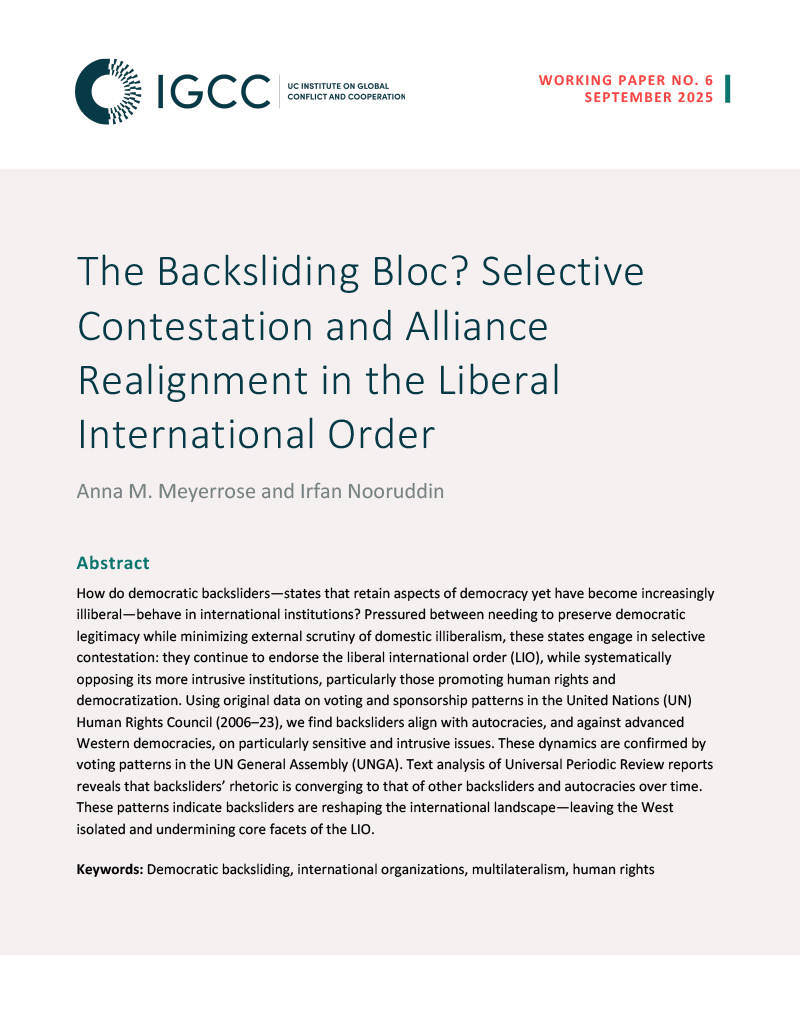The Backsliding Bloc? Selective Contestation and Alliance Realignment in the Liberal International Order

In this working paper, Anna Meyerrose, an assistant professor at Arizona State University, and Irfan Nooruddin, a professor at Georgetown University, examine the behavior of democratic backsliders in international institutions to uncover whether they act more like other democracies, or more like other illiberal states.
DownloadHow do democratic backsliders behave in international institutions? In this working paper, Anna M. Meyerrose, assistant professor at the Arizona State University School of Politics and Global Studies, and Irfan Nooruddin, Hamad bin Khalifa Al-Thani professor of Indian politics at the Georgetown University School of Foreign Service and Department of Government, suggest that the answer lies somewhere in the middle—not like other democracies, but not quite like full-blown authoritarian state either. Rather, these states engage in “selective contestation”: continuing to endorse the liberal international order while systematically opposing its more intrusive institutions. Using original data on voting and sponsorship patterns in the United Nations Human Rights Council, Meyerrose and Nooruddin find that backsliders align with autocracies—and against advanced Western democracies—on issues such as human rights and democratization. Their analysis reveals that backsliders’ rhetoric is converging to that of autocracies over time, indicating that backsliders are reshaping the international landscape, leaving the West isolated and undermining core facets of the liberal international order.
Thumbnail credit: UN Geneva (Flickr)